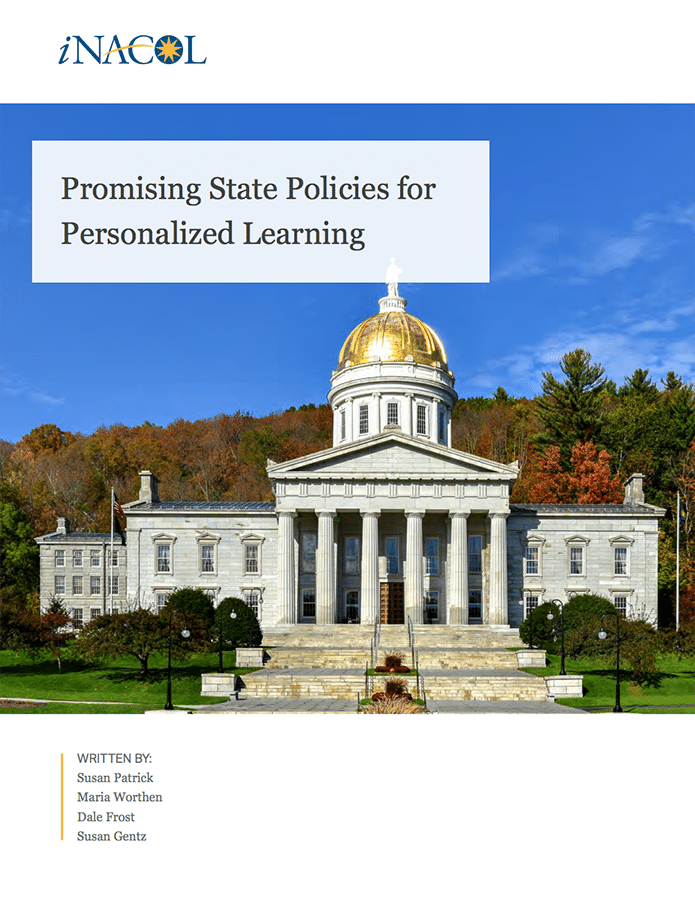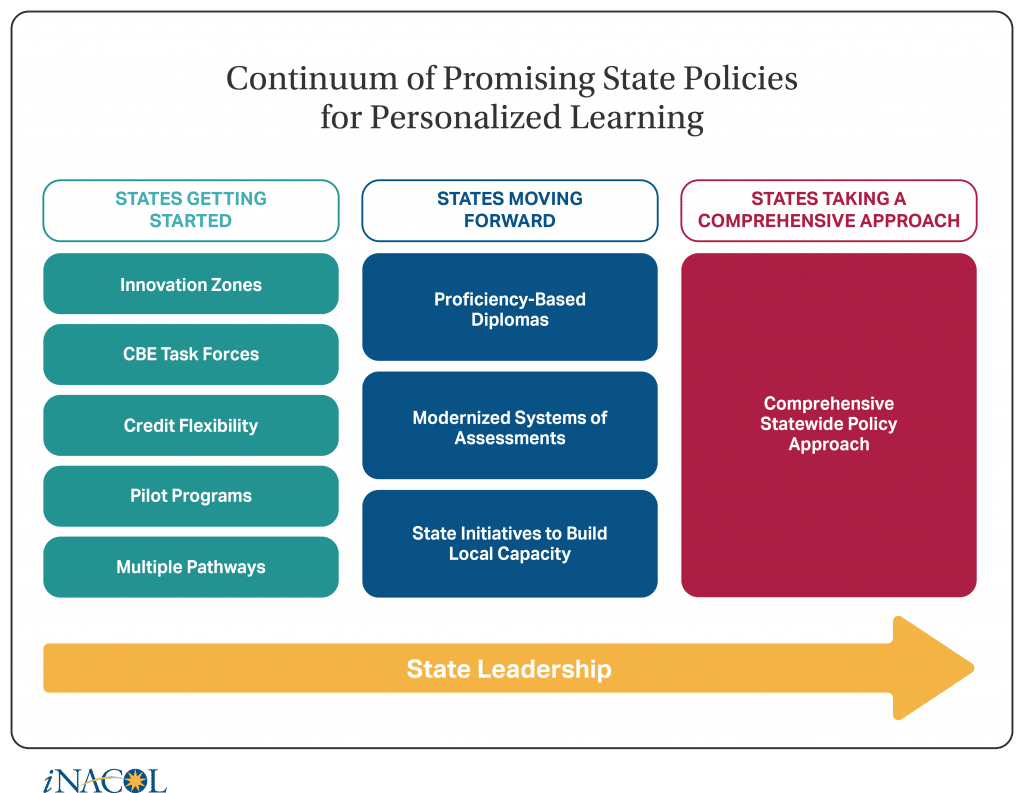Report
Promising State Policies for Personalized Learning

The passage of the Every Student Succeeds Act (ESSA) in December 2015, which reauthorized the Elementary and Secondary Education Act of 1965 (ESEA), ushered in a historic opportunity to rethink K-12 education across the country.3 The new law allows localities to create systems of assessments that meet students where they are in their learning by identifying successes or issues in real time, and to use multiple measures of student learning and growth for accountability. State policymakers have a chance to expand learning opportunities for students and create enabling policy environments to allow personalized learning to flourish.
This report is a valuable resource for state policymakers — whether they are seeking to create conditions in state policy to support personalized learning, moving forward with initiatives to develop personalized learning pilot programs, hosting task forces to explore policy issues and needs, or taking a comprehensive policy approach for supporting advanced personalized learning models. Personalized learning is where instruction is tailored to each student’s strengths, needs, and interests — including enabling student voice and choice in what, how, when, and where they learn — to provide flexibility and supports to ensure mastery at the highest levels.

State policymakers can become partners with practitioners in identifying and removing system barriers to launching and supporting personalizing learning models to ensure each student’s success. In 2016, states have a historic opportunity to create flexibility to enable powerful, personalized learning experiences with the reauthorization of the Federal K-12 education law, the Every Student Succeeds Act (ESSA).